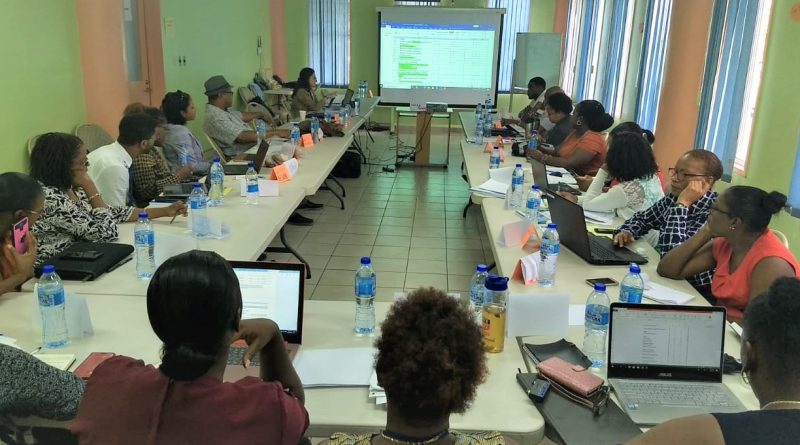Santa Lucia moves forward with the implementation of its National Crime Victimization Survey with the support of UNODC
From June 11 to 14, 2019, the Center of Excellence visited the city of Castries, in Santa Lucia, to continue providing technical assistance to the Central Statistical Office for the implementation of its National Crime Victimization Survey (SLNCVS) 2019-2020.
This survey will be based on the methodology of the Latin America and the Caribbean Crime Victimization Survey Initiative (LACSI Initiative), which consists of an approved regional questionnaire that follows the United Nations international standards generated and promoted by the United Nations Office for Drugs and Crime (UNOC) as the International Classification of Crimes for Statistical Purposes (ICCS, 2015) and the Manual of Victimization Surveys (2010). Adopting this Initiative means that Saint Lucia can generate quality, reliable, timely and comparable statistical information to monitor the progress of the 2030 Sustainable Development Goals, especially 4 indicators of SDG 16 (16.1.3, 16.1.4, 16.3.1 and 16.5.1) under the sole custody of UNODC that promotes just, peaceful and inclusive societies.
In this workshop, the regional questionnaire was used as a model and was adapted to the country context, to build a national tool to develop evidence-based crime prevention policies. The SLNCVS will measure various aspects of the citizens’ security perception, as well as their condition of being a victim of any of the 18 crimes measured in this survey, including: Theft of motor vehicle or motorcycle, burglary, personal robbery, personal theft, bank and consumer fraud, extortion, sexual harassment, cyberbullying and kidnapping.
In these sessions, 29 members of different institutions that comprise the Steering Committee attended, such as the Central Statistical Office (lead agency), Royal St. Lucia Police Force (SLPF), Department of Gender Relations, Attorney General Chambers, Bordelais Correctional Facility, Substance Abuse Secretariat, Department of Economic Development, among others, as well as non-governmental organizations and the academy. This makes Saint Lucia the second country in the Caribbean to adopt this Initiative (after Jamaica) and the 7th in the Latin American and Caribbean region.
These activities were carried out within the framework of the cooperation activities between UNDP and UNODC, through the CariSecure project.





